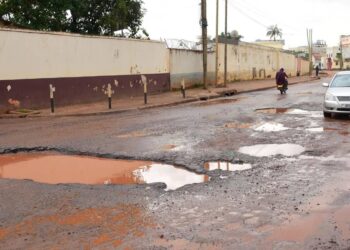OPINION
Every 26 January, government bodies, environmental groups and non-governmental organisations celebrate the International Day of Clean Energy with the aim to celebrate progress, reflect on challenges and recommit to ensuring that no one is left behind in the clean energy transition.
The day also usually mark the founding date of the International Renewable Energy Agency (IRENA), which is a global intergovernmental agency established to support countries in their energy transitions, serve as a platform for international cooperation, provide data, analyze clean energy technology, innovation, policy, finance and investment.
Though IRENA was founded in 2009 to support the widespread adoption and sustainable use of all forms of renewable energy, nearly 3 billion people in the world depend on the burning of biomass such as wood, charcoal, crop residues and coal in rudimentary stoves or open fires to meet basic needs for household energy.
According to the Notre Dame Global Adaptation initiative (2021), Uganda ranks as the 13th most vulnerable country in the world to climate change and 160th out of 192 nations in readiness to confront the threat. This is because Ugandans heavily use firewood and charcoal biomass as primary cooking fuels.
In the world where climate change is being felt, clean energy adoption would play a critical role in reducing the emissions and benefiting communities that lack access to reliable power sources. According to the International Energy Agency (IEA), in 2022, around 2.3 billion people worldwide lacked access to clean cooking facilities and they were relying on the traditional use of solid biomass, kerosene or coal as their primary cooking fuel.
Notably, the situation in Africa was dire with almost 1 billion of the people still not having access to clean cooking technologies yet International Renewable Energy Agency (IRENA) indicates that Africa is rich in renewable energy sources including hydro, sun, wind and others, which raises a fundamental question.
Why shouldn’t African countries especially Uganda make use of the renewable energy sources to power homes, industries gardens, schools and hospitals? In many circumstances, we have heard patients die from hospitals due to electricity challenges which would be hardly registered with the use of renewable energy sources.
The renewable energy sources are around us, they are clean, accessible, affordable, sustainable, reliable and environmental friendly compared to dirty fuels such as charcoal, fuelwood and kerosene that produce greenhouse gas emissions once burnt, resulting into global warming and climate change.
Lastly, adopting the clean energy sources can help the country to address unemployment that is caused by lack of job opportunities and related restrictive nature of attaining the few available ones such as certain level of education, work experience, gender disparities, age among other discriminating aspects other than merit and performance.
By Hildah Nsimiire, the writer is a Research Associate at Africa Institute for Energy Governance.
E-mail: hildansimiire@gmail.com








































